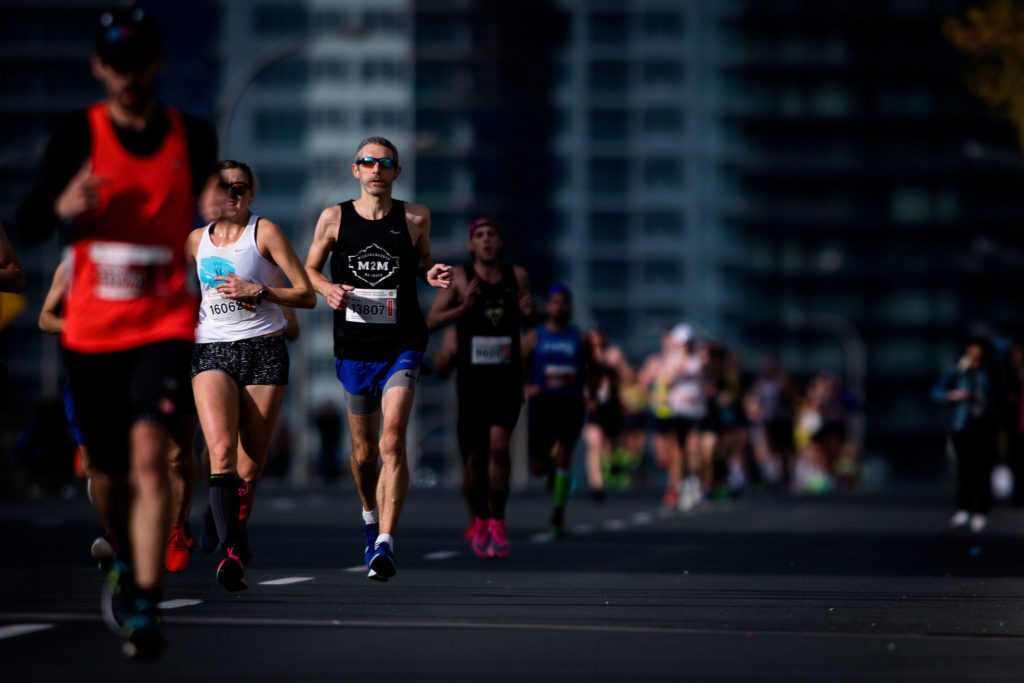Why athletes shouldn’t be concerned about their BMI
Why runners can take their BMI score with a grain of salt

BMI (body mass index) is widely understood as a marker of physical health. But when BMI is applied to athletes and runners, there isn’t always the same correlation between a sub-optimal BMI and a person’s overall health.
RELATED: What an elite ultramarathoner eats in a day
To show the folly of strict BMI application to elite athletes, I took this great graphic from @jburnmurdoch and imposed lines for BMI 25 (overweight, purple), 30 (obesity class I, red) & 35 (Obesity Class II, black). Any athlete to the right of a line is overweight or obese! pic.twitter.com/bCxuDAxXVJ
— Ross Tucker (@Scienceofsport) February 23, 2020
Should athletes consider their BMI when assessing health?
According to the above graph of professional athletes’ BMI scores, LeBron James, Kevin Durant and Odell Beckham Jr. are all approaching obese. However, sports nutritionist Jennifer Sygo says that this is common when it comes to body mass index and elite athletes, because the index isn’t geared towards assessing an athletic population. “Body mass index is a tool that can be used to assess risk of developing disease. It’s largely used to measure population health and assess individual risk of Type 2 diabetes, cancer or heart failure. But these are issues that become less prevalent when looking at an athletic population.”
https://www.instagram.com/p/B6z6fdhgC5o/
All BMI measures is height and weight, and assigns a score based on the intersection of those two figures. But Sygo says that these two numbers alone don’t tell anywhere close to the whole story about a person. “BMI doesn’t consider age, sex, bone density, muscularity, ethnicity or dietary habits,” she says. “Those are just a few examples of factors that contribute to overall health and a person’s weight.” In the case of NBA player Lebron James, his BMI reads high due to his muscularity (as it does with a lot of athletes).
Even if a runner does fall into the category of ‘obese’ based on their score, Sygo says they’re not at as high a risk for diabetes, cancer or heart failure, due to their physical activity level. “When you’re active, the same disease risks don’t apply, even if you fall into the obese category. There’s some good evidence that even if you’re a higher body-weight runner, you’re still at a lower risk for disease than someone at the same BMI who doesn’t exercise. You’re far better off, even if the extra weight isn’t coming from muscle.”

Athletes that do consider their BMI
Depending on what sport a person is training for, BMI is a tool that can be used to measure an athlete’s physique. Sygo says, “In some sports BMI is used to assess if an athlete big enough for their sport, even though I think there are better ways to asses this.” This would be seen in sports like rowing, wrestling or certain positions in basketball or football.
The takeaway for runners? If you’re otherwise in good physical health but your BMI reads a little high–don’t give it another thought (because Lebron’s does too).


